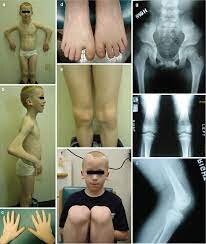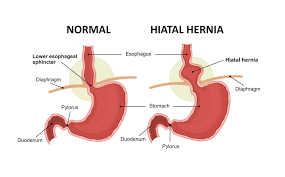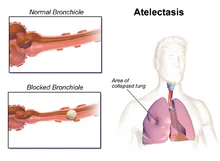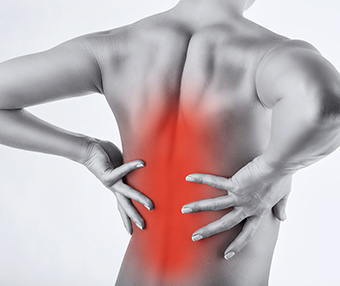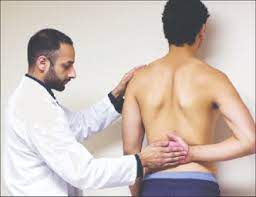Why do I have Sharp Pain in My Stomach?
Experiencing sharp pain in the stomach can be a distressing and uncomfortable sensation that may indicate various underlying health concerns. The stomach is a vital organ involved in the digestion and processing of food, and any discomfort or pain in this area should not be ignored. Several factors can contribute to the development of stomach pain, ranging from minor digestive issues to more severe medical conditions.
This article aims to explore the common causes of sharp stomach pain, including potential triggers such as dietary habits, infections, inflammation, and more. Understanding the possible origins of this discomfort can help individuals make informed decisions about seeking appropriate medical care and adopting preventive measures to maintain their overall well-being.
- When gas or indigestion, sharp, stabbing stomach discomfort comes and goes is possible. However, it frequently indicates a medical ailment that needs to be treated.
- While severe stomach pain frequently requires medical diagnosis and urgent treatment, severe stomach pain can occasionally be linked to indigestion.
- Other symptoms including nausea, vomiting, dizziness, or confusion should also be noted.
- If you get sharp stabbing sensations in your lower abdomen that don’t go away in two hours, call your doctor or head straight to the emergency department.
Table of Contents
Types Of Sharp Pains In The Stomach
Depending on how long the pain has been there, there are various types of abdominal discomfort:
- Acute discomfort might last for several hours or days.
- Chronic pain may come and go, lasting for weeks, months, or longer.
- Progressive discomfort deteriorates over time.
While some discomfort or pain in the abdomen is natural, piercing agony can be frightful. Although most belly pain isn’t alarming, it could indicate a more serious health issue.
You can identify the likely cause of your strong stomach pains and whether you need to consult a doctor by considering the intensity of the pain, where it is located in the abdomen and other signs.
Sharp, recurrent stomach pain: causes and treatments
Sharp abdominal discomfort may have a variety of causes. Certain causes are worse than others.
Appendicitis
- Your appendix, a tube-shaped organ, is inflamed when you have appendicitis. Sharp abdominal pains in the lower right corner of your belly are a sign of appendicitis. Other typical signs include bloating, nausea, and vomiting.
- Although the right bottom quadrant of the body is where appendicitis is most frequently felt, it can also cause radiating discomfort in other parts of the body.
- The typical therapy for appendicitis is the surgical excision of the appendix.
Gallstones
- Gallstones are stone-like particles that can develop in the bile ducts or gallbladder. The stones are made of bilirubin or cholesterol.
- You will have severe abdominal pain if gallstones obstruct a duct in your gallbladder. Cholecystitis, or gallbladder inflammation, is what is causing the pain.
Other cholecystitis signs and symptoms include:
- sweating
- vomiting
- fever
- skin, eyes, or the interior of the mouth with a yellowish tinge (jaundice)
- If gallstones cause signs, they may require to be removed or dissolved via laparoscopic surgery or medicines. Sometimes it’s necessary to get out the entire gallbladder.
Ovarian Cysts
- A condition known as ovarian cysts causes the ovaries to form fluid-filled sacs. They may develop on their own during ovulation.
- Ovarian cysts, typically on the side of the body where they are located, can cause severe pain in the lower abdomen if they become large enough. Additionally, possible symptoms include pressure, edema, and bloating.
- Sometimes ovarian cysts disappear on their own, but other times they require surgical removal.
Irritable Bowel Syndrome
- Irritable bowel syndromes are ailments of the digestive tract that cause moderate to severe pain before a bowel movement.
- You’ll recognize patterns in your abdomen discomfort if you have irritable bowel syndrome (IBS), as it frequently happens after eating particular meals or at particular times of the day.
Additional signs include:
- Bloating
- Gassiness
- Your bowel movement contains mucous
- Diarrhea
IBS treatment entails:
- Dietary and lifestyle adjustments
- Spasmolytic medications
- Medicine for nerve pain
- Infection of the urinary tract
- Most frequently, a bladder infection causes a urinary tract infection (UTI). Your kidneys and your urethra are two more areas of your urinary tract that may get an infection.
- A UTI also results in a burning feeling when urinating and a persistent urge to urinate in addition to abdominal pain.
- Antibiotics are typically used to treat UTIs.
Indigestion and Gas
- After eating, indigestion is a typical collection of sensations that you can feel. Indigestion can be brought on by eating too quickly, consuming fatty meals and alcohol, and eating under stressful circumstances.
- Your body’s digestion of food results in gas, which is trapped air in your digestive system. Your upper part of the abdomen or lower intestine may occasionally experience severe pain due to gas or indigestion. Usually, this ache goes away after you’ve had a bowel movement.
- Over-the-counter (OTC) antacids can be used to alleviate indigestion and gas pain.
- Antacids can be purchased online.
Gastroenteritis
Although a flu virus does not bring it on, gastroenteritis is frequently referred to as “the stomach flu”Trusted Source.
A disease in your intestines called gastroenteritis results in:
- Diarrhea
- Vomiting
- Severe abdominal aches
While stomach flu symptoms might be painful, they are not life-threatening unless you start to get dehydrated.
The primary line of treatment for gastroenteritis is rest and maintaining hydration.
Peptic Ulcers
- A peptic ulcer is a lesion on the lining of the abdomen. Ibuprofen use over an extended period or Helicobacter pylori infection are two potential causes.
- A dull, searing stomach discomfort is a symptom of peptic ulcers. Peptic ulcers need to be identified and treated to heal, but they are typically not life-threatening conditions.
- Proton pump inhibitors or antibiotics are frequently used to treat peptic ulcers, depending on the underlying reason.
Food allergies and Lactose intolerance
- Sharp abdominal aches might occur after eating food to which you are allergic or sensitive when your body attempts to digest it. If you eat anything that “doesn’t agree with” your body, you could occasionally have gas and indigestion symptoms.
- Abdominal pain caused by food allergies or sensitivities is not an emergency unless you have allergies that put you at risk for anaphylaxis. If you eat anything that your body can’t adequately digest, you can also have bloating or diarrhea.
- If you have a lactose allergy, ask your doctor about replacement enzyme supplements, which may help you consume dairy without experiencing symptoms.
Ectopic Pregnancy
- According to a 2011 review that appeared in the BMJ Sexual and Reproductive Health journal, ectopic pregnancies account for 1% to 2% of pregnancies.
- It is impossible for an egg to support a pregnancy to term if it implants in the fallopian tube as opposed to the uterus. This type of pregnancy may endanger life if not treated.
- An ectopic pregnancy may be detected by severe lower abdominal pain and some vaginal bleeding. The chance of this form of pregnancy is increased by smoking and fertility medicines. Vomiting and diarrhea can also happen occasionally.
- Surgery and medicines are required for the treatment of ectopic pregnancies to save the fallopian tubes and maintain fertility. The signs of this syndrome are comparable to the first trimester of a conventional pregnancy.
- If you think you might have this illness, consult a doctor.
Ovulation Pain
- It’s not unusual for folks to feel sick around the time of ovulation.
- The ovary may feel “stretched” shortly before the egg is released, resulting in some pain in the lower abdomen. This happens just before the egg is dropped. Although it may feel severe, this discomfort shouldn’t continue for more than a few hours.
- Ovulation pain is currently untreatable, but oral contraceptives may make it less severe.
Food Poisoning
- When germs from the food you eat enter your digestive tract, it results in food poisoning, which causes diarrhea, nausea, and excruciating stomach pain.
- Acute food poisoning starts very rapidly and usually doesn’t stay very long. Food poisoning can develop into an emergency if you get exhausted or if specific strains of harmful bacteria are to blame.
Signs and Symptoms of Severe Stomach Pain
Sharp stomach pains can have a variety of symptoms depending on where they are and how they feel. There may also be additional symptoms including fever, nausea, or vomiting.
You could feel several kinds of stomach aches. These qualities may include:
Generalized Pain
Generalized discomfort is pain that you experience throughout a significant portion of your abdomen, usually more than that. Gas, indigestion, or a stomach illness could be the source of this discomfort. If the discomfort is severe, a plugged intestine may be to blame.
Localized Pain
Your stomach’s localized pain is concentrated in only one region. This is more probable to be a symptom of problems with an organ, such as the stomach, gallbladder, uterus, or appendix.
Cramp Pain
Your abdominal muscles may feel like they are tightening more when you have a cramp. This kind of pain is frequently brought on by bloating, gas, or menstruation problems. The discomfort can be more dangerous if it persists for more than 24 hours or is accompanied by a fever.
Colic Discomfort
It’s possible for colic discomfort to come and go, seemingly in waves. It could begin and end abruptly. Gallstones or kidney stones may be the culprit if the pain is severe.
Location of Stomach Pain
While stomach pain may be widespread, covering more than half of the abdomen, it can also vary in intensity across the stomach. These places are where it can happen:
- Lower or upper abdomen
- Upper and lower abdomen on the right
- Lower and upper abdomen on the left
- Left and right pelvises
- More signs and symptoms
Abdominal discomfort may also cause the following other symptoms:
- Fever
- Difficulty swallowing or eating
- Dehydration
- Inability to urinate
- Vomiting
- Diminished appetite
- Frequent or painful urination
- Bloating
- Belching
- Gas
- Indigestion
- Constipation
- Diarrhea
- Heartburn
- Chest pain
Additional symptoms that are more severe include:
- Extreme pain
- A stool with blood in it
- Persistent dizziness and nausea
- Loss of weight
- Fading skin
- Abdomen sensitivity
- Abdomen-related swelling
How Do We Identify the Causes Of Abdominal Discomfort?
A medical expert would probably inquire about your symptoms and the nature of your pain if you have severe abdominal pain and require medical assistance. They will use your responses to determine the next stages in testing and diagnosis.
The following tests could be done to determine the cause of your stomach pain:
- Blood examinations
- Urinalysis
- Stomach X-ray
- An MRI
- Ultrasonography of the cervix
Abdominal Pain Treatment and Home Remedies
Depending on the origin of the stomach pain, various therapies may be used, such as:
- Drugs to lessen inflammation, stop acid reflux, treat infection or ulcers
- Surgery to address an organ issue
Aspirin and ibuprofen are examples of over-the-counter painkillers that might aggravate your stomach and make your pain worse. Please do not take them unless your doctor has determined the source of your abdominal pain and has prescribed them.
Certain dietary and lifestyle modifications may reduce gas and indigestion-related abdominal pain. You can try the following:
- Frequently eat fewer servings of food.
- Eat gradually.
- Take your time chewing.
- Consume liquids at room temperature.
- Avoid eating foods that give you gas or discomfort.
- Maintain stress control.
- Limit your consumption of alcohol and caffeine.
- Straighten yourself out after eating.
- Take a little stroll after eating and engage in regular physical activity.
When is Stomach Pain a Serious Medical Issue?
abdominal pain necessitates immediate medical attention if:
- You are expecting (this could be a result of a miscarriage or a ruptured ectopic pregnancy).
- Within a week of abdominal surgery, your pain begins or gets worse.
- Your pain started 1-2 days after the abdominal injury.
- Your tummy is ballooning or enlarging.
- Life-threatening conditions that can induce abrupt, severe stomach pain include:
- Appendicitis
Bowel blockage brought on by ailments like:
- Hernia
- Scarring following prior abdominal surgery
- Intestinal swelling brought on by colon cancer
- Volvulus (twisting of the intestine’s loops)
- A portion of the bowel slipping into itself is known as intussusception.
- Ulceration that can result from inflammatory bowel illness might cause intestinal perforation, which is a hole in the intestine.
Summary
Experiencing sharp pain in your stomach can be caused by a variety of factors, and it’s essential to consider several possibilities. This type of pain can result from digestive issues such as gas, indigestion, or constipation, which may lead to temporary discomfort. Infections, such as gastroenteritis, can also manifest as sharp stomach pain, accompanied by symptoms like diarrhea or vomiting.
In some cases, more severe conditions like appendicitis, gallstones, or gastrointestinal ulcers may be responsible for the pain and require immediate medical attention. Furthermore, stress and anxiety can contribute to abdominal discomfort. If the pain persists, worsens, or is accompanied by other concerning symptoms such as fever, bleeding, or difficulty breathing, it’s crucial to consult a healthcare professional for a proper diagnosis and appropriate treatment.
FAQs
Yes, adopting a healthy lifestyle can reduce the risk of stomach issues. This includes stress reduction techniques, frequent exercise, and a balanced diet.
Before ingesting any medicine, get medical advice. Some over-the-counter pain relievers may exacerbate certain stomach conditions.
Yes, stress and anxiety can lead to stomach discomfort and pain. Learning stress-reduction techniques and seeking professional help may be beneficial.
Depending on the cause, your doctor may recommend dietary changes, such as avoiding spicy foods for acid reflux or following a low-food meal diet for irritable bowel syndrome.
References:
Watson, K. (2023, February 14). Inconsistent Sharp Abdominal Pain Causes and Treatment. Healthline. https://www.healthline.com/health/sharp-stomach-pain-that-comes-and-goes#_noHeaderPrefixedContent
Shaikh, J. (2022, February 28). What Causes Sharp Pains in the Stomach? MedicineNet. https://www.medicinenet.com/what_causes_sharp_pains_in_the_stomach/article.htm


